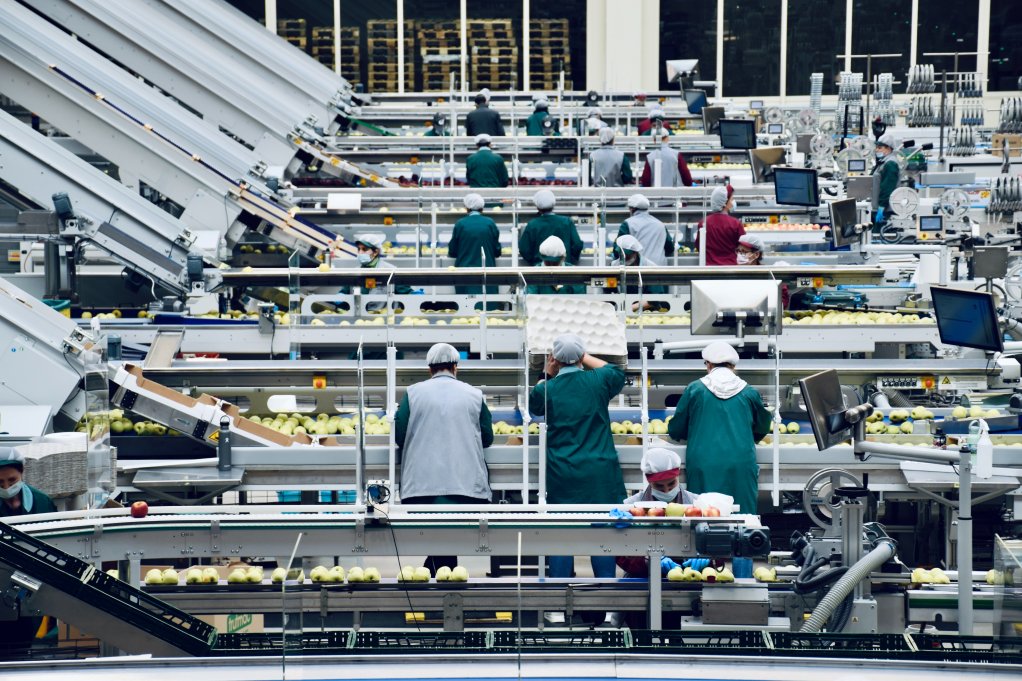Growing demand for fire solutions in food industry


PACKING HEAT Packaging materials and crates used in the food packaging industry are often flammable and a fire risk
Fire risk management company ASP Fire has noted a steady increase in its percentage of food industry-related revenue, owing to the insurance industry placing stricter fire safety requirements on clients.
The increase in revenue has also been driven because of word-of-mouth referrals and ASP Fire’s unique approach to fire safety design, which focuses on compliance design, with the client’s direct input.
“We don’t take any shortcuts, and the design is tailor-made for the client and their operations’ unique circumstances, while including the insurer’s risk engineers every step of the way,” says ASP Fire CEO Michael van Niekerk.
He points out that the fruit and food industry represent about 40% of ASP Fire’s revenue stream.
“So far this year, we have completed sprinkler systems and risk assessment projects for four clients, in Limpopo; a complete fire safety design for a client, in the Eastern Cape; and a sprinkler and gas-suppression design, in the Western Cape,” he says.
The duration of the sprinkler system projects ranges from eight months to 12 months, depending on the seasonal timing, with risk assessment projects taking four to six weeks.
Van Niekerk explains that for projects in the Western Cape ASP Fire used gas-suppression technology in a controlled atmosphere, known as a hypoxic environment, in the electrical cabinets as the risk of fire ignition is centred on electrical equipment.
“We specified high-volume self-flushing filters to use water stored in 480 000 m3 irrigation dams that hold 1 000 times the volume of water required for a sprinkler system. This provided a direct cost benefit for the client,” adds Van Niekerk.
Meanwhile, food-processing and storage facilities are typically constructed with expanded polystyrene (EPS) Isowall panels, which Van Niekerk says poses a notable challenge.
“EPS is classified as a plastic and the buildings are, therefore, of nonstandard construction that require specialist design and fire protection systems,” he stresses.
The nonstandard construction combined with high-piled storage generally requires sprinkler protection.
Van Niekerk stresses that, in the food sector, another challenge is that there are many people in the building during the packing season, usually working within confined spaces, which makes evacuation in an emergency difficult.
“The lives and safety of these people is usually the main focus during the design phase,” he adds.
The off season is characterised by an increase in packaging material stored within packhouses, consequently increasing what is known as a fire load in the building.
Fire load is made up of leftover fruit cardboard cartons to empty bulk plastic bins and handling crates, which are all highly flamable
The increased fire load is not always seen as a risk by clients, but Van Niekerk says it is much more of a concern when the buildings are not always occupied, as this would delay a fire being detected.
ASP Fire assists in the design of tailormade solutions for its food industry clients to develop win-win solutions for both its clients and the insurance industry.
Article Enquiry
Email Article
Save Article
Feedback
To advertise email advertising@creamermedia.co.za or click here
Press Office
Announcements
What's On
Subscribe to improve your user experience...
Option 1 (equivalent of R125 a month):
Receive a weekly copy of Creamer Media's Engineering News & Mining Weekly magazine
(print copy for those in South Africa and e-magazine for those outside of South Africa)
Receive daily email newsletters
Access to full search results
Access archive of magazine back copies
Access to Projects in Progress
Access to ONE Research Report of your choice in PDF format
Option 2 (equivalent of R375 a month):
All benefits from Option 1
PLUS
Access to Creamer Media's Research Channel Africa for ALL Research Reports, in PDF format, on various industrial and mining sectors
including Electricity; Water; Energy Transition; Hydrogen; Roads, Rail and Ports; Coal; Gold; Platinum; Battery Metals; etc.
Already a subscriber?
Forgotten your password?
Receive weekly copy of Creamer Media's Engineering News & Mining Weekly magazine (print copy for those in South Africa and e-magazine for those outside of South Africa)
➕
Recieve daily email newsletters
➕
Access to full search results
➕
Access archive of magazine back copies
➕
Access to Projects in Progress
➕
Access to ONE Research Report of your choice in PDF format
RESEARCH CHANNEL AFRICA
R4500 (equivalent of R375 a month)
SUBSCRIBEAll benefits from Option 1
➕
Access to Creamer Media's Research Channel Africa for ALL Research Reports on various industrial and mining sectors, in PDF format, including on:
Electricity
➕
Water
➕
Energy Transition
➕
Hydrogen
➕
Roads, Rail and Ports
➕
Coal
➕
Gold
➕
Platinum
➕
Battery Metals
➕
etc.
Receive all benefits from Option 1 or Option 2 delivered to numerous people at your company
➕
Multiple User names and Passwords for simultaneous log-ins
➕
Intranet integration access to all in your organisation


















